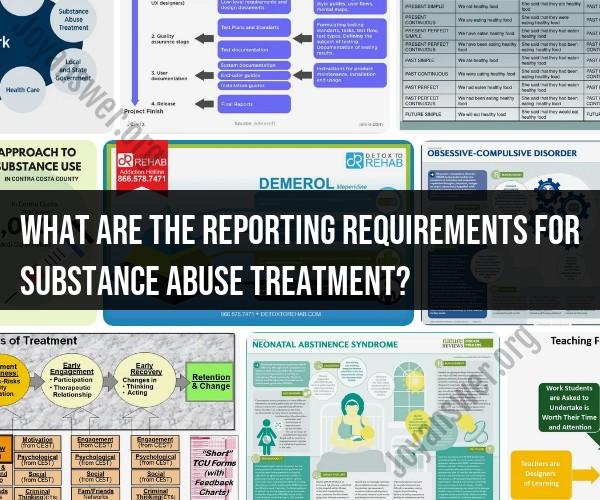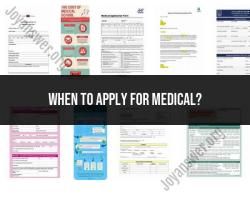What are the reporting requirements for substance abuse treatment?
Reporting requirements for substance abuse treatment vary based on factors such as jurisdiction, type of treatment facility, and applicable laws. However, there are common obligations and considerations that treatment providers need to understand. Here's an overview of reporting requirements for substance abuse treatment:
1. Confidentiality and Privacy Laws:
- Substance abuse treatment facilities are typically subject to federal and state confidentiality laws, such as the Health Insurance Portability and Accountability Act (HIPAA) and the Substance Abuse and Mental Health Services Administration (SAMHSA) regulations (42 CFR Part 2). These laws protect the privacy and confidentiality of patient records and information.
2. Consent for Release of Information:
- Generally, patient consent is required to release any information related to their treatment. This includes sharing information with family members, other healthcare providers, or legal entities.
3. Mandatory Reporting:
- Treatment providers may have a legal obligation to report certain situations, such as child or elder abuse, harm to self or others, or specific communicable diseases. These reporting requirements vary by jurisdiction.
4. Court Orders and Subpoenas:
- Treatment facilities may receive court orders or subpoenas requesting patient records or information. Providers need to follow legal procedures for responding to such requests, which may include notifying patients and seeking legal advice.
5. Information Sharing with Other Healthcare Providers:
- Sharing patient information with other healthcare providers may require patient consent. However, information sharing for treatment purposes is generally allowed within the bounds of applicable laws.
6. Reporting to Licensing and Regulatory Authorities:
- Treatment facilities are often required to report certain incidents or events to licensing and regulatory authorities. This may include incidents like patient deaths, serious injuries, or violations of regulations.
7. Reporting for Statistical and Research Purposes:
- Some treatment facilities may be required to report anonymized statistical data for research or public health purposes. These reports typically do not include patient-identifying information.
8. Limits on Reporting to Law Enforcement:
- Substance abuse treatment information is generally protected from being disclosed to law enforcement without patient consent, except in cases involving threats to public safety or other specific circumstances.
9. Duty to Warn:
- Some jurisdictions impose a "duty to warn" or "duty to protect" when a patient poses a serious risk of harm to themselves or others. Providers may be obligated to take appropriate actions to mitigate these risks.
10. Documentation and Record Keeping:- Accurate and detailed record keeping is essential for compliance with reporting requirements. Treatment providers should maintain clear and comprehensive patient records, documenting any disclosures or releases of information.
It's crucial for substance abuse treatment providers to be familiar with the laws and regulations specific to their jurisdiction and facility type. Consulting legal counsel and staying updated on relevant laws and guidelines is essential to ensure compliance with reporting requirements while safeguarding patient confidentiality and privacy.













